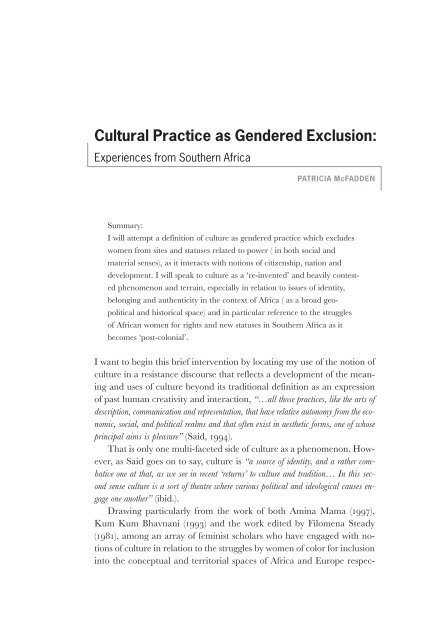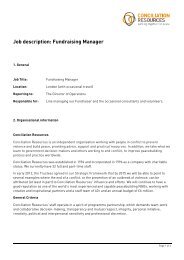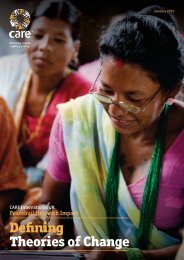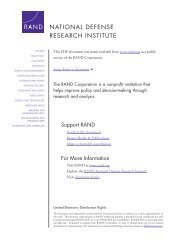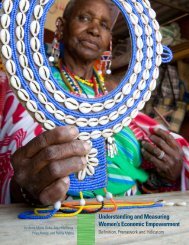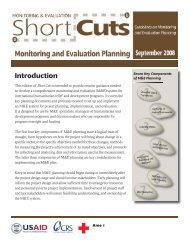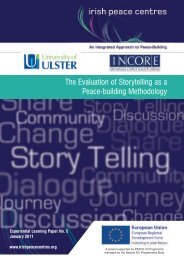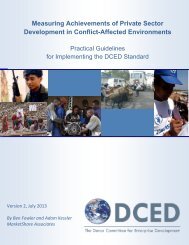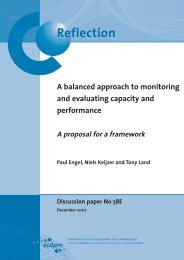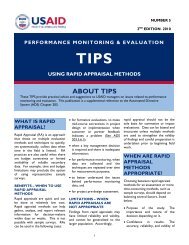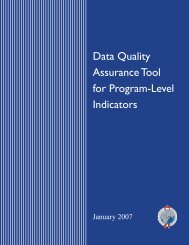Discussing Women's Empowerment - Sida
Discussing Women's Empowerment - Sida
Discussing Women's Empowerment - Sida
You also want an ePaper? Increase the reach of your titles
YUMPU automatically turns print PDFs into web optimized ePapers that Google loves.
Cultural Practice as Gendered Exclusion:<br />
Experiences from Southern Africa<br />
PATRICIA McFADDEN<br />
Summary:<br />
I will attempt a definition of culture as gendered practice which excludes<br />
women from sites and statuses related to power ( in both social and<br />
material senses), as it interacts with notions of citizenship, nation and<br />
development. I will speak to culture as a ‘re-invented’ and heavily contested<br />
phenomenon and terrain, especially in relation to issues of identity,<br />
belonging and authenticity in the context of Africa ( as a broad geopolitical<br />
and historical space) and in particular reference to the struggles<br />
of African women for rights and new statuses in Southern Africa as it<br />
becomes ‘post-colonial’.<br />
I want to begin this brief intervention by locating my use of the notion of<br />
culture in a resistance discourse that reflects a development of the meaning<br />
and uses of culture beyond its traditional definition as an expression<br />
of past human creativity and interaction, “…all those practices, like the arts of<br />
description, communication and representation, that have relative autonomy from the economic,<br />
social, and political realms and that often exist in aesthetic forms, one of whose<br />
principal aims is pleasure” (Said, 1994).<br />
That is only one multi-faceted side of culture as a phenomenon. However,<br />
as Said goes on to say, culture is “a source of identity, and a rather combative<br />
one at that, as we see in recent ‘returns’ to culture and tradition… In this second<br />
sense culture is a sort of theatre where various political and ideological causes engage<br />
one another” (ibid.).<br />
Drawing particularly from the work of both Amina Mama (1997),<br />
Kum Kum Bhavnani (1993) and the work edited by Filomena Steady<br />
(1981), among an array of feminist scholars who have engaged with notions<br />
of culture in relation to the struggles by women of color for inclusion<br />
into the conceptual and territorial spaces of Africa and Europe respec-


